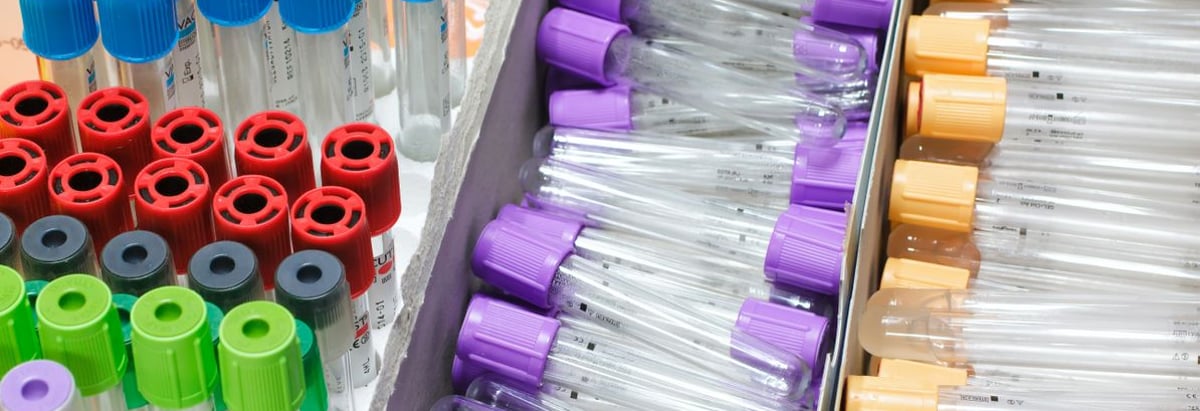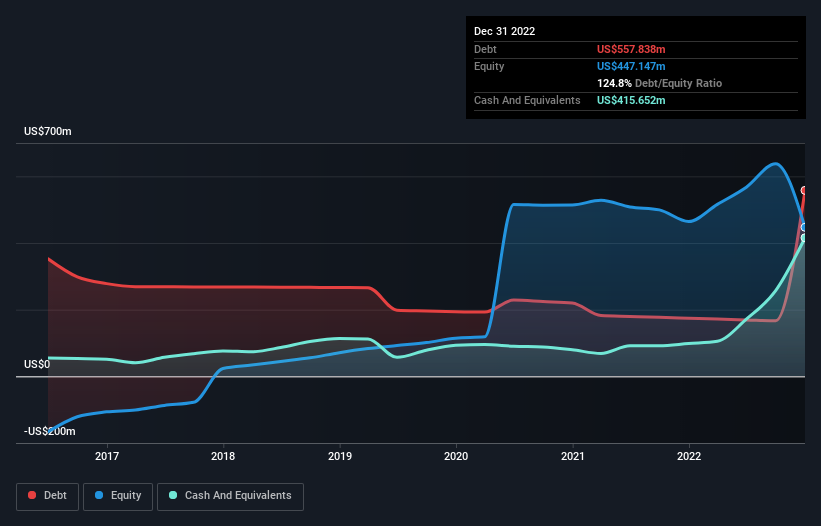- United States
- /
- Medical Equipment
- /
- NasdaqGM:LNTH
Here's Why Lantheus Holdings (NASDAQ:LNTH) Can Manage Its Debt Responsibly

The external fund manager backed by Berkshire Hathaway's Charlie Munger, Li Lu, makes no bones about it when he says 'The biggest investment risk is not the volatility of prices, but whether you will suffer a permanent loss of capital.' When we think about how risky a company is, we always like to look at its use of debt, since debt overload can lead to ruin. As with many other companies Lantheus Holdings, Inc. (NASDAQ:LNTH) makes use of debt. But the more important question is: how much risk is that debt creating?
When Is Debt A Problem?
Debt assists a business until the business has trouble paying it off, either with new capital or with free cash flow. If things get really bad, the lenders can take control of the business. While that is not too common, we often do see indebted companies permanently diluting shareholders because lenders force them to raise capital at a distressed price. Having said that, the most common situation is where a company manages its debt reasonably well - and to its own advantage. The first thing to do when considering how much debt a business uses is to look at its cash and debt together.
Check out our latest analysis for Lantheus Holdings
What Is Lantheus Holdings's Debt?
The image below, which you can click on for greater detail, shows that at December 2022 Lantheus Holdings had debt of US$557.8m, up from US$174.4m in one year. On the flip side, it has US$415.7m in cash leading to net debt of about US$142.2m.

How Healthy Is Lantheus Holdings' Balance Sheet?
We can see from the most recent balance sheet that Lantheus Holdings had liabilities of US$247.7m falling due within a year, and liabilities of US$626.4m due beyond that. Offsetting this, it had US$415.7m in cash and US$213.4m in receivables that were due within 12 months. So its liabilities total US$245.1m more than the combination of its cash and short-term receivables.
Of course, Lantheus Holdings has a market capitalization of US$6.05b, so these liabilities are probably manageable. However, we do think it is worth keeping an eye on its balance sheet strength, as it may change over time.
In order to size up a company's debt relative to its earnings, we calculate its net debt divided by its earnings before interest, tax, depreciation, and amortization (EBITDA) and its earnings before interest and tax (EBIT) divided by its interest expense (its interest cover). This way, we consider both the absolute quantum of the debt, as well as the interest rates paid on it.
With a debt to EBITDA ratio of 1.7, Lantheus Holdings uses debt artfully but responsibly. And the alluring interest cover (EBIT of 7.9 times interest expense) certainly does not do anything to dispel this impression. It was also good to see that despite losing money on the EBIT line last year, Lantheus Holdings turned things around in the last 12 months, delivering and EBIT of US$36m. When analysing debt levels, the balance sheet is the obvious place to start. But ultimately the future profitability of the business will decide if Lantheus Holdings can strengthen its balance sheet over time. So if you're focused on the future you can check out this free report showing analyst profit forecasts.
Finally, a business needs free cash flow to pay off debt; accounting profits just don't cut it. So it's worth checking how much of the earnings before interest and tax (EBIT) is backed by free cash flow. In the last year, Lantheus Holdings created free cash flow amounting to 9.5% of its EBIT, an uninspiring performance. For us, cash conversion that low sparks a little paranoia about is ability to extinguish debt.
Our View
Based on what we've seen Lantheus Holdings is not finding it easy, given its conversion of EBIT to free cash flow, but the other factors we considered give us cause to be optimistic. In particular, we thought its interest cover was a positive. We would also note that Medical Equipment industry companies like Lantheus Holdings commonly do use debt without problems. When we consider all the elements mentioned above, it seems to us that Lantheus Holdings is managing its debt quite well. Having said that, the load is sufficiently heavy that we would recommend any shareholders keep a close eye on it. Over time, share prices tend to follow earnings per share, so if you're interested in Lantheus Holdings, you may well want to click here to check an interactive graph of its earnings per share history.
At the end of the day, it's often better to focus on companies that are free from net debt. You can access our special list of such companies (all with a track record of profit growth). It's free.
New: AI Stock Screener & Alerts
Our new AI Stock Screener scans the market every day to uncover opportunities.
• Dividend Powerhouses (3%+ Yield)
• Undervalued Small Caps with Insider Buying
• High growth Tech and AI Companies
Or build your own from over 50 metrics.
Have feedback on this article? Concerned about the content? Get in touch with us directly. Alternatively, email editorial-team (at) simplywallst.com.
This article by Simply Wall St is general in nature. We provide commentary based on historical data and analyst forecasts only using an unbiased methodology and our articles are not intended to be financial advice. It does not constitute a recommendation to buy or sell any stock, and does not take account of your objectives, or your financial situation. We aim to bring you long-term focused analysis driven by fundamental data. Note that our analysis may not factor in the latest price-sensitive company announcements or qualitative material. Simply Wall St has no position in any stocks mentioned.
About NasdaqGM:LNTH
Lantheus Holdings
Develops, manufactures, and commercializes diagnostic and therapeutic products that assist clinicians in diagnosis and treatment of heart, cancer, and other diseases worldwide.
Very undervalued with flawless balance sheet.


